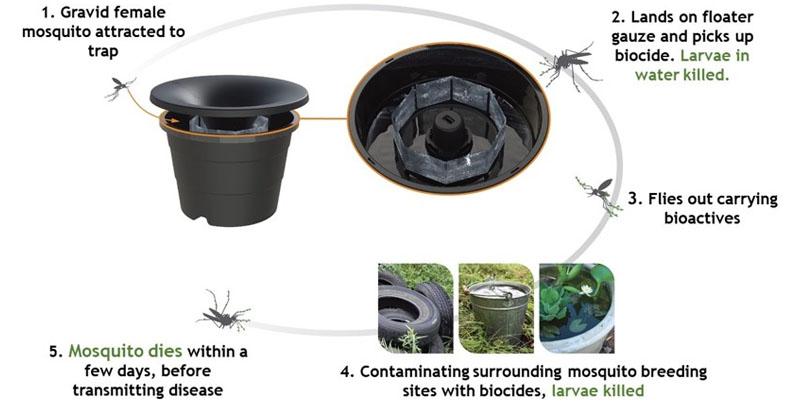Mosquitoes in Arizona
Mosquitoes in Arizona, you are kidding right? Certainly not the first thing you think about in Arizona. How could it be so bad when it’s a desert? It’s a commonsense question, but the answer is still the same. WATER is the reason. Mosquitoes only need a small amount of water and our most troublesome Aedes species of mosquito prefer small artificial containers for breeding and do not breed in ponds or pools of water. This mosquito’s natural inclination is to lay its eggs in multiple spots, so it travels between multiple water sources. One key feature of the Aedes aegypti and albopictus mosquitoes is they are both day-biting and container-breeding mosquitoes. These flying insects are easily found in an urban setting of a residential or commercial property.
More Than Spraying for Mosquitoes
Reducing mosquito populations in a quick hurry is still important. Especially when you are trying to have an outdoor event. Employing a outdoor fogging to knock down a large population of mosquitoes is going to make an immediate impact to the area, but unfortunately only temporarily. This is reactionary pest control, called adulticide. You are only dealing with adult mosquitoes, and ultimately only a very small percentage of the actual mosquito problem. If mosquitoes have already laid eggs and continue to do so you have the full breeding cycle established. There will be more where they came from. These adult mosquitoes are basically farming. A female mosquitoes needs to harvest your blood in order to fertilize the next brood of eggs.
Even Great Technology Bay Need An Assist
Additional barrier spray treatments may be necessary where only small areas are being treated with In2Care. Keep in mind Aedes mosquitoes can travel over 200 yards, and neighbors could have their own mosquito breeding sites. Also, salt march mosquitoes or swamp breeder type of mosquitoes are not likely to visit In2Care pots. A barrier spray treatment will help minimize the problem. And one other important reason to implement a barrier spray treatment is a rainstorm may develop newly formed puddles of clean water. Mosquitoes could lay eggs in this fresh water. While the In2Care traps can control a population increase, it may be delayed for 1 -2 weeks before it can reduce the biting adults from the fresh water sources that were newly introduced from a rain storm.
Stop The Mosquitoes At The Larvae Stage
Death occurs at the time they pupate – that is the larvae transform from pupa into adult. So if you remember your high school biology class, the life cycle is egg, larvae, pupa and adult. This is important because to understand new technology specifically designed to control mosquitoes, they have gone after the mosquito before it becomes an adult, and in fact, turned the adult into the lethal weapon against itself.
The Tool – In2Care Mosquito Trap
We have mentioned the new technology, well it is here, it’s called In2Care Mosquito Trap. While it says it is a trap, it is more of an attractant and let’s say infectant. Adult mosquitoes are attracted into the trap. There they become infected with PPF (the active ingredient), actually fungus spores that are a biological entomopathogen and juvenile hormone analogue that blocks mosquito growth hormone. This prevents transformation from larvae into adult mosquito. This all simply means – killing only insects – lots of science here, so we will call it PPF for the duration of this article. Keep it simple, right? But hopefully just enough to help you understand the use of In2Care.
How it Works
Adult mosquito gets PPF on it when it lands in a trap, as it moves from water source to water source it infects those bodies of water with PPF. PPF will prevent larvae from pupating into an adult. Adults that originally received the dose will die in 8 to 10 days. As pupa die, the larvae tend to eat them, this helps produce odors that attract more adults, and the cycle goes on and on.
With the reduction of one female adult mosquito, you eliminate over 1000 mosquitoes being reproduces, so on average if a service can reduce the adult population by 30% you can expect about an 80% total reduction of mosquito population if the area is properly treated with good coverage using In2Care.
Get your mosquito program started today!
